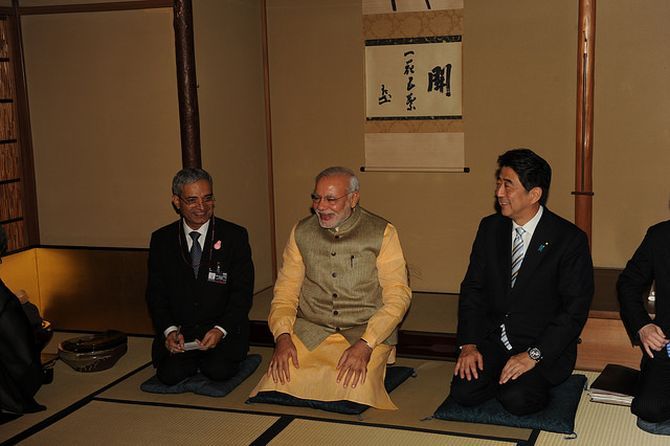
It was in 2007 that the two leaders met on an official visit during Japanese Prime Minister Shinzo Abe’s first term in office. They met again in 2012 when Modi visited Japan in as chief minister of Gujarat.
That bond seems to have strengthened with Modi expressing his admiration for Shinzo Abe in a series of tweets and the Japanese prime minister expressing his own admiration for India and respect for Modi.
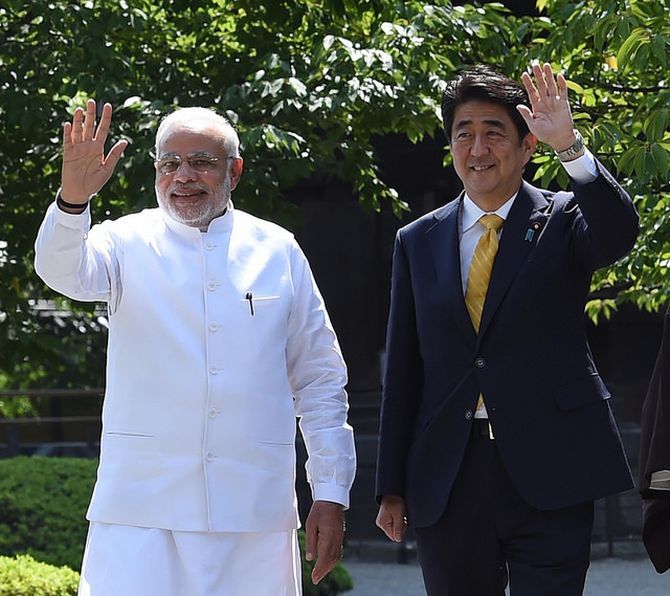
Abe's gesture of flying to Kyoto to receive Prime Minister Narendra Modi was unusual and Modi’s visit was already hailed as an outstanding success.
The long-touted Modi-Abe “bromance” was on display when the two leaders on Sunday visited ancient Buddhist temples in Kyoto.

They spent about half-an-hour at the Toji temple complex where Modi enquired about the history of the eighth-century Buddhist pagoda. He thanked Abe for accompanying him to the temple and spending time with him. Abe on his part told Modi that it was only the second time that he had visited Toji temple, the last being during his student days.

"I am very glad that PM Modi enjoyed the cultural heritage of Japan's ancient capital, Kyoto," Abe tweeted.
"With PM Modi, I visited Toji temple this morning. Looking at statutes of Buddha, we were reminded of the deep historical ties between Japan and India," Abe said, adding that his dinner meeting with Modi was "very enjoyable".

The two prime ministers had a good laugh when PM Shinzo Abe, during the tour of the ancient temple, began to explain the significance of the lotus attached to a statue of Lord Buddha. Modi pointed out that he knows about it. "I know its significance. It is the symbol of my party," he said.
Abe also planned to host Modi for a rare tea ceremony reserved for only the most treasured guests.

Prime Ministers Narendra Modi and Shinzo Abe have a few things in common too. They are united by their staunch nationalism and right-wing views; they celebrate birthdays in September. Abe became PM on December 26, 2012, while Modi was elected Gujarat CM for the third time that month. Modi, too, became PM on a 26th - May this year.
Numerical oddities aside, there are striking similarities in the way the two prime ministers do their politics.
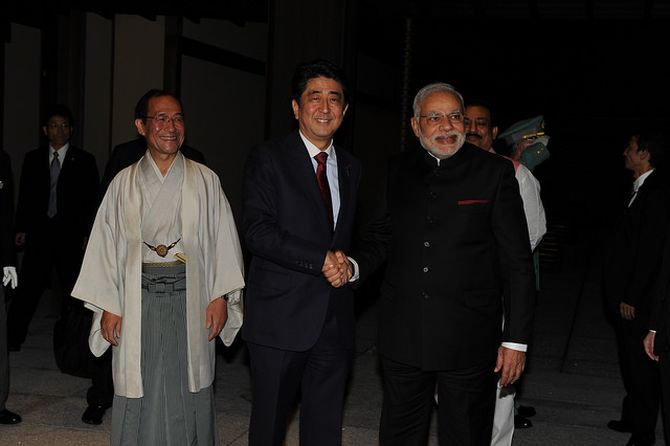
Narendra Modi is unapologetic in his jettisoning of what he regards as token secularism; Abe has ignored critics of Japan's past by visiting the Yasukuni shrine to pay respect to the war dead. Both Abe and Modi came to power booting out left-of-centre formations short on charisma, an attribute the two men have in spades. Both brought stable governments after years of policy uncertainty, the Hindustan Times reported.



.jpg)




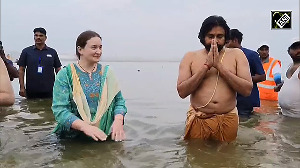
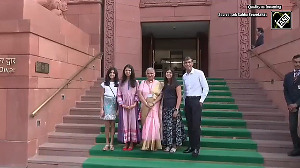

 © 2025
© 2025